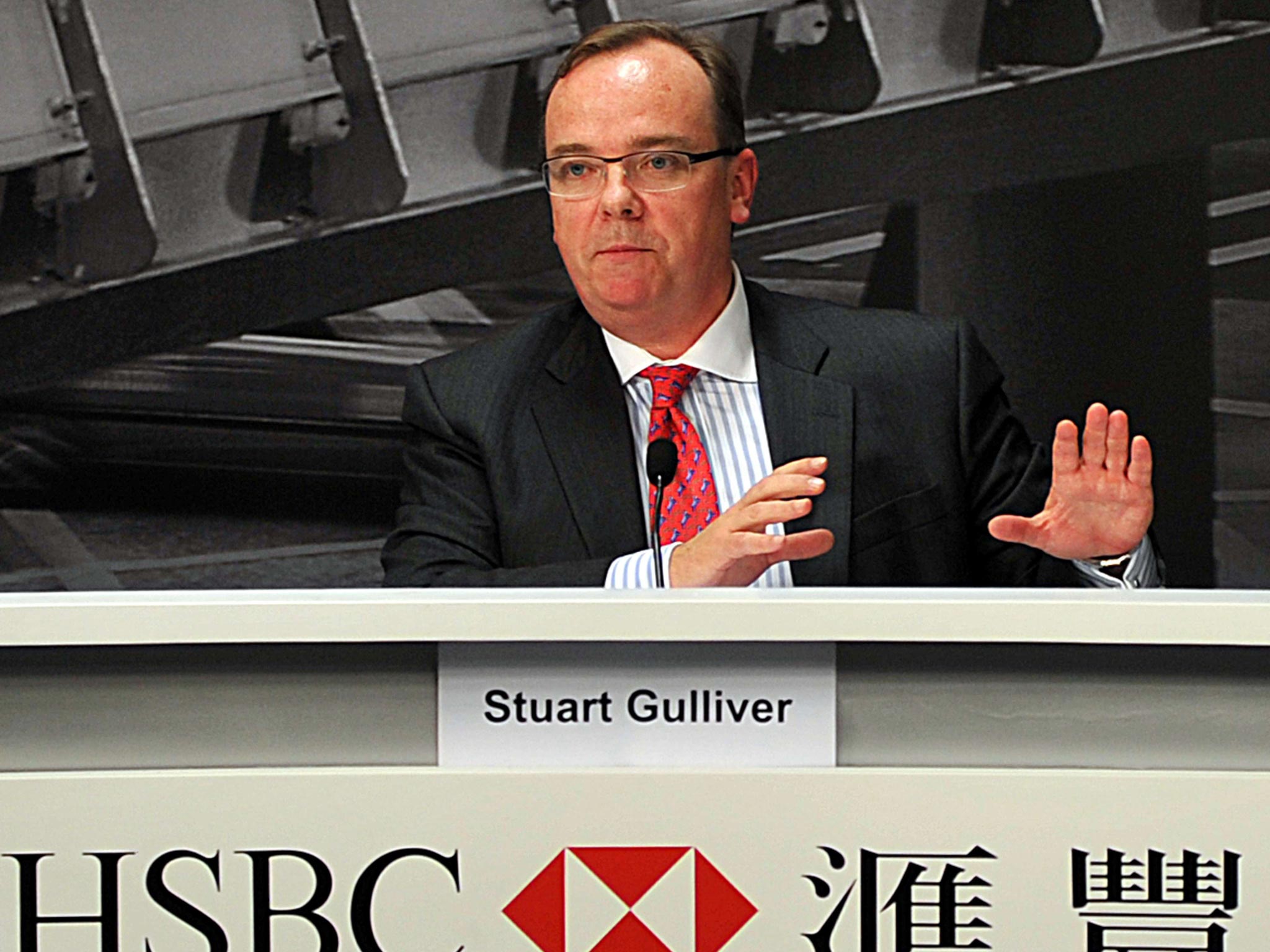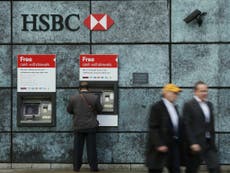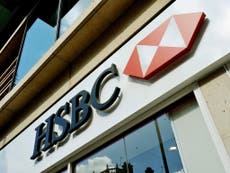HSBC profits rise but chief executive Stuart Gulliver admits Swiss tax scandal has rocked morale
HSBC's pre-tax profits rose 4 per cent to a better-than-expected $7.06bn (£4.66bn) in the three months ending 31 March

HSBC chief executive Stuart Gulliver admitted that the company’s Swiss banking scandal has hit morale across the group even as profits beat City forecasts during the first quarter of the year.
The bank, which last month revealed it had launched a review into whether to pull its headquarters out of London in favour of Asia, said pre-tax profits rose 4 per cent to a better-than-expected $7.06bn (£4.66bn) in the three months ending 31 March.
This was fuelled by a strong performance from the investment-banking division, combined with unusually low losses form bad loans and the lack of any serious provisions against any of its regulatory issues.
But Mr Gulliver said one of the biggest of those issues, the tax-avoidance scandal in its Swiss division, had hurt the business in more ways than just its potential financial impact. “It’s affected the sense of pride people have working for HSBC, even though it has not led to a significant impact on assets or pre-tax profits.”
While shares in the lender spiked shortly after the results were announced they finished the day down 3.2 per cent, or 20.4p, at 625.9p.
The bank said it had hired more compliance staff to help navigate sweeping changes to banking regulation. The new, tougher rules are part of the reason the bank is considering leaving Britain, along with the UK bank levy that has sparked widespread criticism from within the industry.
Last year HSBC paid £750m in levy – more than any other bank and just over a third of the total £2.2bn demanded by the Treasury. It has risen repeatedly under Chancellor George Osborne, and his current shadow Ed Balls has promised a further hike if he moves into to No 11 Downing Street.
HSBC’s options include returning to Hong Kong or moving to another financial centre like Singapore or New York, although the former is considered by far the most likely option. Authorities in China’s special administrative region have said they would welcome the bank back to what was its original home before its move to the UK following the Midland Bank takeover.
Some 48,000 of HSBC’s 275,000 worldwide staff work in the UK and reports have suggested a move could prompt the bank to spin off its UK retail business, which will anyway have to have a separately constituted board under new ring fencing rules. “[The review] will take a few months,” Mr Gulliver added. “Until we finish the review it will be impossible to say how much we could save.”
Martin Gilbert, chief executive of Aberdeen Asset Management, which is a top 10 shareholder in HSBC, said he would back the board but added: “No one should underestimate how hard it would be to move from London. It would take years, not months.”
Investec’s banking analyst Ian Gordon said that the numbers “offer slight relief in the context of the structural challenges that HSBC continues to face”. He hailed the performance of the investment bank and HSBC’s “very low impairments”.
Subscribe to Independent Premium to bookmark this article
Want to bookmark your favourite articles and stories to read or reference later? Start your Independent Premium subscription today.





Join our commenting forum
Join thought-provoking conversations, follow other Independent readers and see their replies
Comments